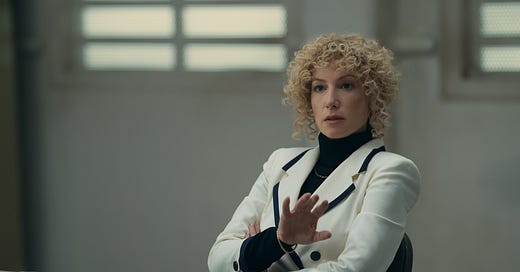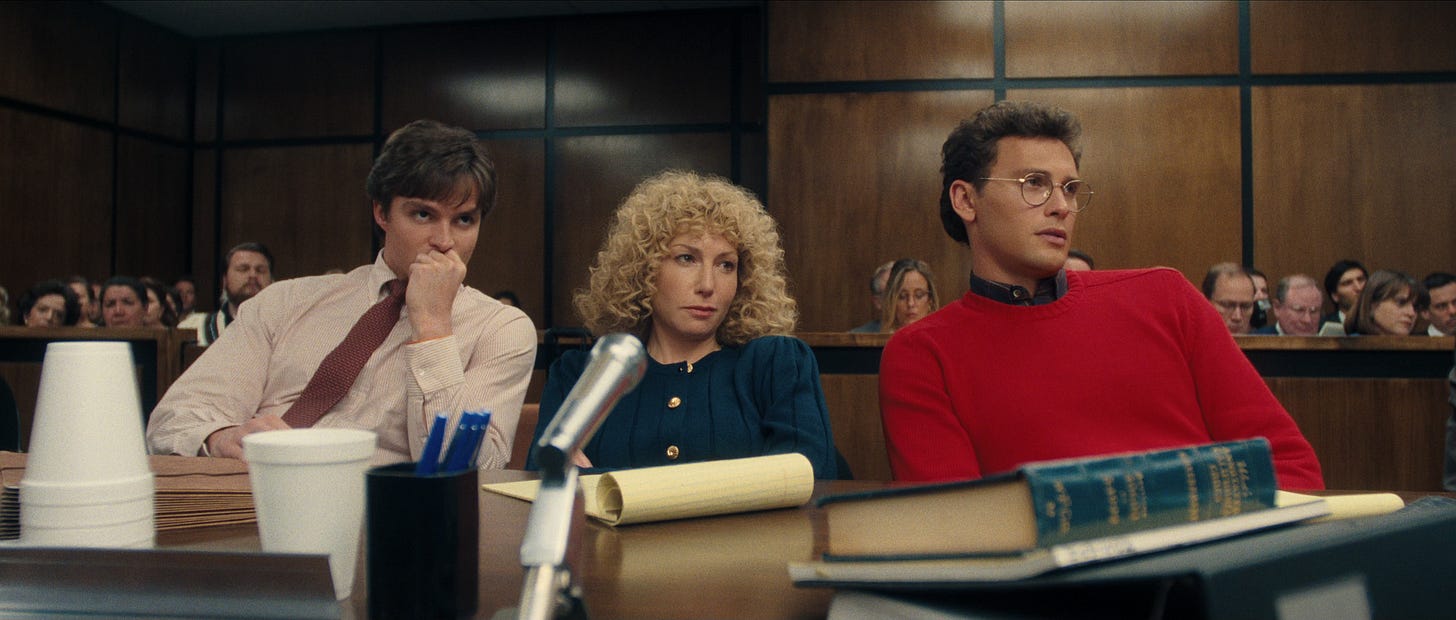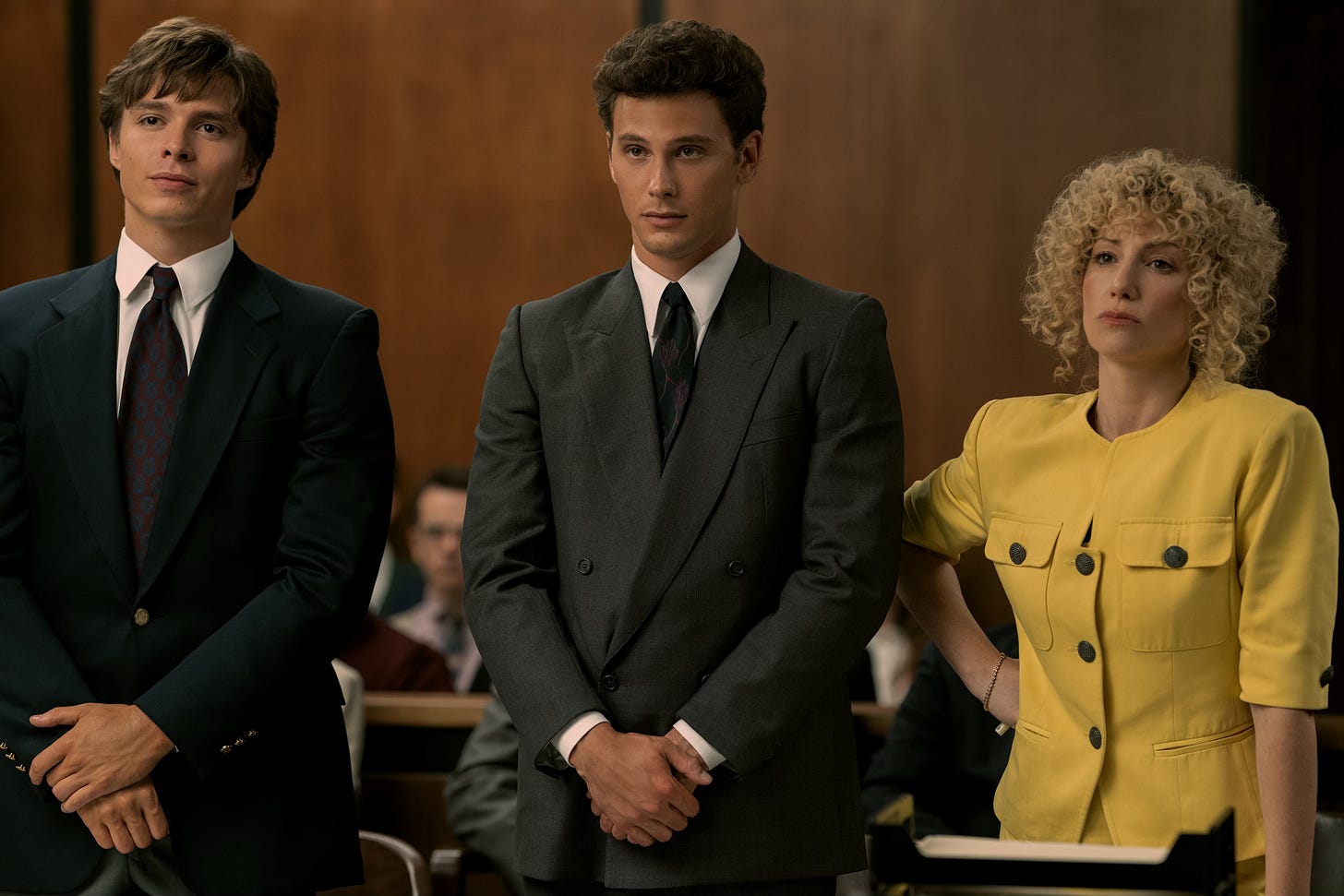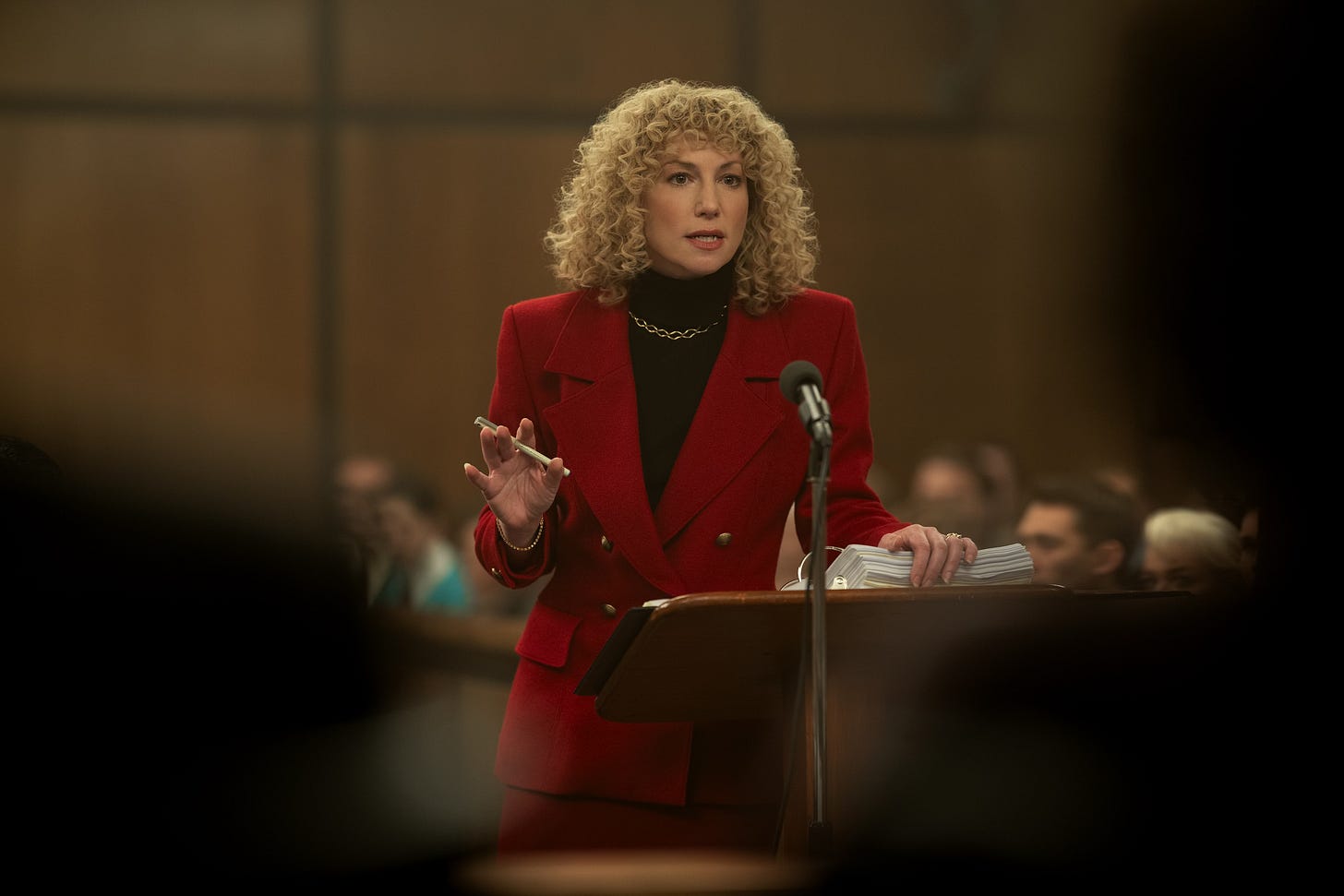Ari Graynor On Becoming Powerhouse Attorney Leslie Abramson In 'Monsters: The Lyle and Erik Menendez Story'
The actress recounts her research, preparation, and thought process for playing this iconic real life person...
The Lyle and Erik Menendez story has been a source of fascination since the early 1990s when their trial was a first-of-its-kind televised sensation. A complicated matter, more so now viewed under the lens of time, increased visibility, and understanding of physical, emotional, and sexual abuse. The brothers were convicted of killing their parents, and countless documentaries and docu-series have been made about this shocking true-life story. Possibly none have had the impact that television maestro Ryan Murphy's Monsters: The Lyle and Erik Menendez Story. Since its debut, it has racked up big numbers for Netflix and social media chatter.
It features a dynamite cast, including academy-award-winner Javier Bardem, indie film and style icon Chloë Sevigny, breakout star Cooper Koch, Nicholas Alexander Chavez, Nathan Lane, and Ari Graynor. Graynor has built up a solid resume of memorable roles in movies and television, including The Sopranos, Fringe, Nick & Norah's Infinite Playlist, and The Disaster Artist. Cast as powerhouse attorney Leslie Abramson, one of the most recognizable figures from the case, Graynor embodies her and makes this role her own. Graynor recently spoke to Immersive via Zoom about this indelible role.
[This conversation has been edited for clarity and length.]
Let's talk about how you got involved with this particular show.
I went into an audition with Tiffany Canfield the day before the actors' strike. Then I got the offer the day the strike ended, so that was a pretty wild psychological exercise in trying to forget and then finding moments of hope but not wanting to get excited. I tried to forget about it as much as possible during the time between. When the offer came, I was overjoyed and terrified and immediately started getting into it.
What was it like working on a Ryan Murphy project? He seems to have hundreds of shows going at any given moment.
It's amazing. He is the most prolific man in Hollywood. Because of the strikes, we had the good fortune of having so many scripts beforehand that they barely changed. The scripts by Ryan, Ian Brennan, and David McMillan were so nuanced, thoughtful, profound, evocative, and provocative. What is so beautiful about Ryan and all the people who work with him is their real sense of family and community, like a company that has all been together for a long time. There was such trust and ease amongst the players and incredible gratitude to be working on something so good, especially after the strikes.
Leslie Abramson is a very real person, very tenacious, and has a reputation. Talk a little bit about playing a larger-than-life figure.
I just wanted to get everything I could about her. I did research, read about the trial, and watched all the YouTube videos, but I also went to the ends of the internet to find anything that had ever been written about her. I came across conversations she had had at law schools and articles that had been written about her before the Menendez trial.
I just wanted to honor her. You feel like you see someone and get their essence right off the bat, and then you wanna do right by them. I felt like I saw her, and I got her. She's so bright, she's strong, she's tough. I think one of the articles quoted her as being a nuclear-strength pain in the ass. That was the way some people knew her. I was immediately touched by her heart, passion, and love for these boys and the justice system, as well as her belief in fairness.
What was your approach to realizing this in your performance?
It's taking all those pieces of information and alchemizing them into a person. She had such a specific way of her movements, and her language was unique. That was quite scary for me when I first got to set because I wanted to catch the sound of her and the feel of her without doing an impersonation. I tried to be subtle and big at the same time. I was quite nervous about doing that out loud and in public for the first time. I just kept going, and once we got into a rhythm, I felt like I could own it.
What's interesting about these real-life figures like Leslie? A number of people had played them, or had you seen any of those? I saw Edie Falco got an Emmy nomination for it. Or did you consciously try to avoid them?
I consciously tried to avoid Queen Edie. I was like, I can't have it in my head. I saw the pictures 'cause anytime on the internet, they would come up. I saw her glorious wig. I think it wasn't until we finished shooting that I finally watched the trailer for that version. I didn't watch the whole show but was curious to see it. I think that's what's wonderful about theater, too, or about known figures who multiple people have played, where you get to see the same essence of someone interpreted in such different ways.
It feels like Leslie's considerable strengths, which she was criticized for, are now complimented. Can you weigh in a little bit on that, her being a strong woman, and how some of the language—if you look up the depictions of her then and now—is totally different?
I think time is a fascinating character in this piece, as well as our perceptions of her and the case then and now. She wasn't the first, nor will she be the last, nor will I be the first or last to talk about the difference in how powerful women are spoken about in the media. I mean, things have changed, question mark... People are still very quick to criticize women who come at things with the same strength as men. I think that especially as it relates to what she was trying to get the jury and the media and culture to understand the first time around about the psychology of trauma and abuse. She was introducing concepts that I certainly think we now have a collective understanding of in ways that we absolutely did not have then.
It's not unknown, but I heard less about it because people just saw that these boys committed a horrible crime. There's a little more to it than that. She tried to make people look at that.
Yes. The defense in the first trial was never about how they were abused, and so that's why they did this. Imperfect self-defense is the good faith belief that your life is in danger. It is a legal concept, and you can be wrong about that. She is trying to explain if this is how you've been raised your entire life and if this is what's happened to you. Here are the signs of what happens when people get triggered. That was not a concept that was collectively understood back then.
Talk a little bit about working with Cooper Koch. A lot of your scenes are with him.
He's my love, angel son, and friend, and he was the first person I spoke to after this job became official. I think both of us immediately felt like kindred spirits and were working in similar ways: reading, watching everything, and knowing every detail of everything that happened. We'd built up so much trust with each other from months before I got to town; we could show up for each other and be completely present. Episode five was a different level for me, learning about deep presence and listening. What he had to do in that episode was Herculean, and I had my work to do on that side of things.
Any sort of unique challenges in doing this? Does anything specific stand out?
I think when you are playing a real person. Trying to work through her in real life in the first trial, her closing argument was 15 hours over three days. I had something like eight pages, which is still an extraordinary amount for a TV show, but it's not her 15 hours of that. I think the parts of when I felt like I was her defense attorney. You know, It's an extraordinary piece of work. I wish everyone could watch it. I thought for a minute about doing a one-woman show of 15 hours of her closing because it's an aria. She's just really incredible. It was hard not being able to do the whole thing, but wanting to give the spirit of what she did.
I think people might go to see the 15-hour play. Do you have any favorite moments, or is that your favorite moment—giving that speech?
That was a very special day for sure when I did her closing. Shooting episode five was a once-in-a-lifetime experience, especially the first time we ever did it out loud. The closing for me was something that I had been building up to for such a long time. There was not a moment of that closing that I didn't know in real life. I was intimidated to step into Leslie's shoes throughout this and I had to keep sort of reminding myself that I could do it. It was a beautiful experience doing that closing where I felt like she and I had really become one and there was no longer any noise upstairs. It just was that experience I think you're always chasing as an actor where you're in the flow completely and there is no separation. It was pretty incredible.
Did you get to add anything to the dialogue? Were you like this has gotta be in there?
There were some things that I threw in. I mean, just in a technical way. I realized throughout the show we never explicitly defined what imperfect self-defense is. Can I put that in there? Some things from her closing weren't necessarily in the script that they threw in throughout.
I love watching lawyers. Part of their job is performing. Did you pick up any sort of lawyerly ticks?
All of that stuff is in there. So, even like her opening or other times throughout the trial, the way she would stand and move and talk and gesticulate was direct from her and those videos, which is such an incredible resource to have. I didn't go to a courtroom because I felt like I had everything I needed in her. I did talk to a lawyer. I did speak to a defense attorney early on in the process just to ask a bunch of questions. Some of them were really technical, like, what do you bring with you when you're going to meet a client? What kind of books and binders? Explain to me what's laid out. Then also about relationships you have with your clients, so come at it from all angles.
What's it like being part of something that has hit a cultural zeitgeist?
It's incredible. I've been around a long time, and nothing I've been a part of has reached any critical mass anywhere close to this. It's an extraordinary thing. You just sort of feel this wild energy around sometimes. It's incredible to see this show's effect on real life. With Erik and Lyle Menendez now eligible for parole, it could be time served when they go to the parole board hearing - there's an incredible power in television. It was wild to have a front-row seat to see that this time around.
Monsters: The Lyle and Erik Menendez Story is available to stream on Netflix.







